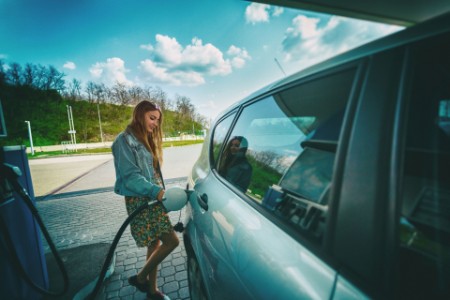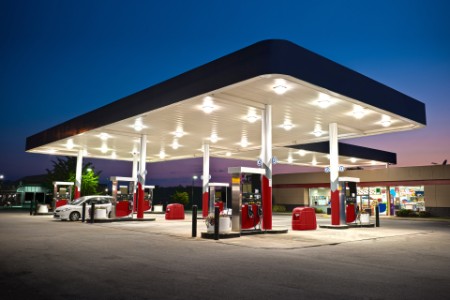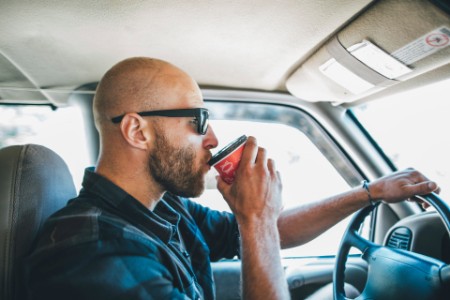
The better the question
Can digital transformation fuel an increase of revenues on the forecourt?
Understanding how tangible innovations could be implemented in a matter of weeks was a challenge.
This global oil and gas retailer had over 16,000 filling stations and convenience stores, which are ideally located for today’s busy consumers. For people on the go, retail forecourts offer easy access to convenience food and fresh groceries.
However, this market is extremely competitive, with razor-thin margins. Loyalty cards, payment apps and special offers are commonly used strategies to attract and retain customers.
This retailer wanted help to create a vision for the future of its forecourts: what technologies could they use to innovate the customer experience? What could the retail space look like?
There was a more immediate challenge: leadership wanted to attract younger people to the forecourts and increase sales in convenience stores. What was needed were tangible innovations that could be implemented in a matter of weeks. There was budget to invest in one technology to increase both footfall and revenues before year end. Which should it be?
We asked EY to help us get in front of our transformation agenda. Working together freed our people to focus on the future and, crucially, to take those next steps. It’s the best technology pilot we’ve ever run.

The better the answer
Understanding customer preferences and building an augmented reality (AR) app to deliver these
We collaborated with both the retailer and its customers, drawing on EY’s extensive research into future consumer trends, to develop an AR app.
With teams across different countries, leadership wanted to get to grips with the latest technologies and explore which was the right fit, together. We used EY wavespace™ to give executives from three countries the space and freedom to imagine the future, and how they wanted to engage with customers. With a curated blend of technology and talent, we broke down geographical barriers and internal silos and aligned thinking.
We also used wavespace to bring a variety of innovative technologies to life. From augmented reality (AR), artificial intelligence (AI), geo-fencing, Internet of Things (IoT), facial recognition and blockchain to scan-as-you-shop technology, we demonstrated how each could be used to improve the customer journey. For example, smart cameras, IoT sensors, and AI could be used to recognize customers on arrival, predictive analytics and geo-fencing could be used to pre-order items to collect on arrival at a chosen forecourt, and facial recognition could be used to authenticate customer payments.
But we knew it wasn’t enough to look at technology: we had to understand customers. What brought customers to the retailer’s forecourts? Where were their “pain points” when refilling and shopping in the forecourts? These were the questions we went directly to customers to answer.
We spent time in the service stations of two countries, gathering feedback. We also drew on EY research into future consumer trends, such as convenience, personalization and the ability to deliver unique experiences. Aligned and energized by what the team learned, the company chose to invest in AR before the year end.
While wavespace works across a number of horizons, this was all about a quick win. Our agile, accelerated way of working drew on a blend of talent across the retailer’s marketing and brand teams, along with EY’s consumer, mobility and technology specialists. Within 10 weeks, we had designed and tested a proof-of-concept app.
In essence, the app sent customers on a treasure hunt. It encouraged people to unlock games and discounts in the convenience stores, creating a fun and differentiated retail experience that engaged new types of customers and encouraged return visits.
Related article

The better the world works
Foundations for a future full of unique, personalized experiences for customers
The company is now positioned to operationalize its vision for the future of its forecourts.
The team’s collaborative, agile working methods resulted in an AR app delivered in a tight timeframe of 10 weeks, which delighted customers and significantly improved their shopping experience:
- Over 50% of customers said the app would make them visit the convenience store more often
- Consumers said the app alone would make them choose the retailer over competitors
"As a result, the company plans to build the app and deploy it in three locations, as the first step to implementing its vision for the future of forecourts. Customers will now be more engaged, saving time with personalized offers and enjoy a better retail experience."


